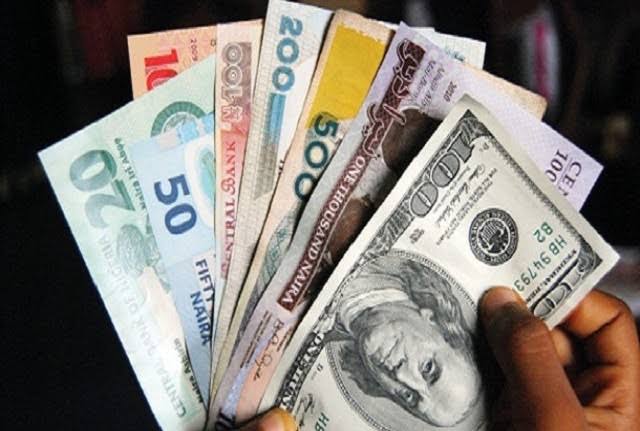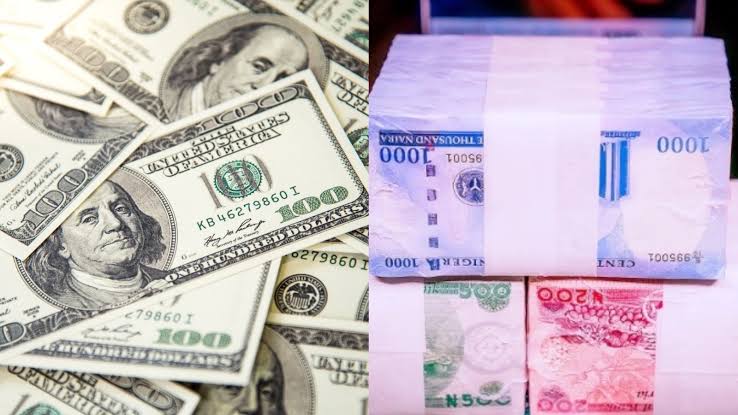Black Market Dollar to Naira Today: Exchange Rates for October 13, 2023
In the dynamic financial landscape of Nigeria, the Black Market Dollar to Naira exchange rate, also known as the parallel market rate, remains a subject of continuous fluctuation, with the US dollar showing its strength against the Nigerian naira. This unofficial market, where foreign currencies are traded without official government authorization, has become a crucial reference point for many Nigerians, offering a more realistic perspective on the economic situation compared to official exchange rates.
Black Market Dollar to Naira Exchange Rate on October 13, 2023:
According to reports from bureau de change (BDC) operators, the Black Market Dollar to Naira exchange rate for the US dollar stands at:
- Buying: 1030 NGN for $1
- Selling: 1040 NGN for $1
To simplify, traders in the black market are buying one US dollar for 1030 naira from customers and selling it for 1040 naira. This reflects a notable variance in comparison to official rates.
Official CBN Exchange Rates as of October 10, 2023:
The Central Bank of Nigeria (CBN) sets the official exchange rates, with the following rates in effect:
- Buying: 764.02 NGN for $1
- Selling: 768.02 NGN for $1
Under these official rates, the CBN acquires one US dollar for 764.02 naira and sells it for 768.02 naira through authorized dealers.
Furthermore, data indicates that the average bank exchange rate for the dollar to naira on the same date was as follows:
- Buying: 775.04 NGN for $1
- Selling: 780.04 NGN for $1
This implies that banks were selling one US dollar for 780.04 naira and buying it from customers for 775.04 naira.
Dollar to Naira Exchange Rates: CBN and Bank Rates as of October 13, 2023
Influential Factors in the Naira’s Depreciation Against the Dollar:
Several factors contribute to the devaluation of the naira against the US dollar, including:
- Oil Prices: Nigeria’s economy is heavily reliant on revenue generated from oil exports. A drop in oil prices reduces Nigeria’s foreign exchange earnings, adversely impacting its balance of payments.
- Forex Demand: Nigeria faces substantial demand for foreign exchange to cover imports, service debts, repatriate profits, and fulfill various financial obligations. This persistent high demand often surpasses the available supply, exerting pressure on the naira’s value.
- Forex Supply: Nigeria’s foreign exchange supply comes from various sources, including oil exports, non-oil exports, remittances, investments, loans, and reserves. These supplies can be influenced by external factors such as fluctuations in oil prices, global economic conditions, sanctions, and currency conflicts.
- CBN Policies: The Central Bank of Nigeria implements various policies and interventions to manage the exchange rate of the naira and stabilize the forex market. These measures encompass the multiple exchange rate system, the forex ban list, the forex allocation system, the forex intervention program, and the forex futures market.
- Market Sentiments: Market sentiments, including expectations, confidence, speculation, rumors, and emotions, significantly influence forex demand and supply. They can impact the behavior of forex dealers and customers.
The exchange rate of the dollar to naira holds great significance as an economic indicator of Nigeria’s performance and stability. This rate fluctuates across different markets, including the CBN, banks, and the black market. While CBN and bank rates are officially regulated, the black market rate is determined by market forces.
As of October 13, 2023, the CBN exchange rate for the dollar to naira stands at 999.31 NGN for $1, the bank exchange rate is 780.04 NGN for $1, and the Black Market Dollar to Naira Today is 1040 NGN for $1. These figures underscore the dynamic nature of the forex landscape in Nigeria and its impact on the country’s economy









